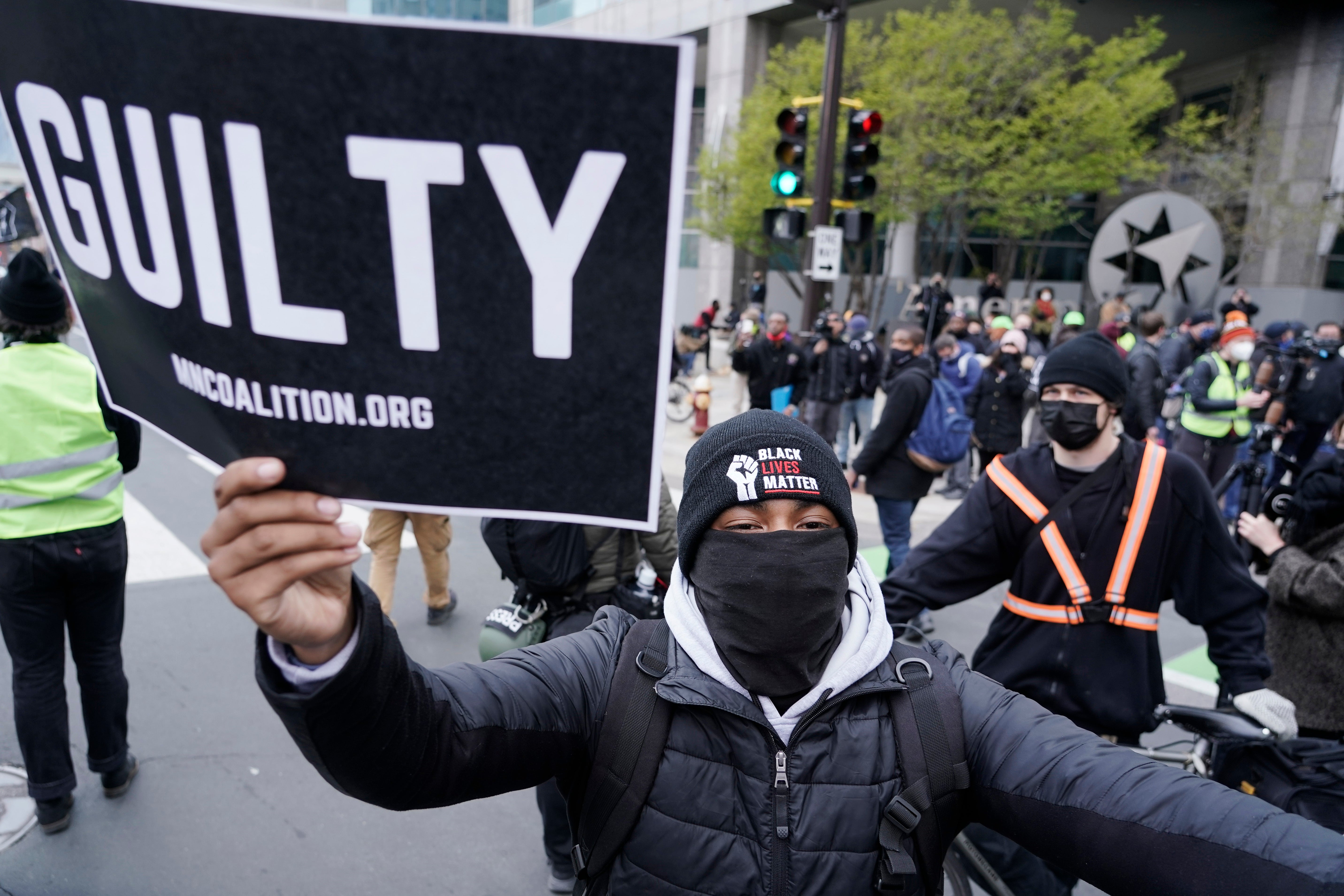The guilty verdict in the George Floyd murder trial is a relief – but the fight for justice isn’t over
Editorial: Politicians must answer the call for change in the wake of Derek Chauvin’s conviction or face more demonstrations and unrest

America, and the world too, can breathe a sigh of relief now that the murderer of George Floyd has been convicted in a fair trial.
Derek Chauvin was given more mercy and justice than he afforded his victim, killed in plain sight, and on video, in front of what amounted to an unwilling audience to an act of racist violence. It set off a global conflagration. It was no end of a lesson for those who believe racism is some relic of the past, or those, as in Britain, who judge that their country is some sort of “beacon” to others. As former president Barack Obama points out, “we know that true justice is about much more than a single verdict in a single trial”.
It is worth reflecting on what might have happened had the verdict been less than the triple “guilty” eventually delivered. As has happened so many times before when American justice stopped short of condemning its agents of law and order, there would have been disorder, but this time on an even greater scale, and protests would have spread across the world. It is what happens when justice is denied. Justice might well have been jeopardised had there been fewer smartphones around at the moment of crisis. Had Donald Trump managed to win the last presidential election, there is no doubt he would have poured fuel on to the flames, just as he did last year. He might well have prejudiced the trial. He might have used and weaponised the case as it proceeded. Instead, Joe Biden is saying and, more importantly, doing the right things, trying to make tangible progress in an unending task.
Not the least of these is securing the passage of the proposed George Floyd Justice in Policing Act through the Senate. The legislation seeks to make some long-overdue reforms in policing, trying to reverse some of the militarisation that has crept in in recent years. The new law would prohibit racial profiling at every level of law enforcement, ban chokeholds, carotid holds and no-knock warrants, institute a national police misconduct registry and weaken “qualified immunity” for the police.
Predictably enough, some Trumpian Republican elements in the Senate are resisting the changes, focusing on “qualified immunity”. Care certainly needs to be taken in framing the rules of engagement for the use of sometimes lethal force. America’s police themselves have to bravely face armed criminals who have no compunction about discharging their weapons in the most indiscriminate way. Split-second decisions have to be made in the face of danger to the public or the officers attending. Yet the case of George Floyd shows what happens when that qualified immunity is abused or stretched too far in the criminal justice system; it becomes a licence to kill with impunity.
Even in today’s fractured political culture, it is difficult to believe that America’s most senior statesmen and stateswomen, overwhelmingly white, would fail to answer their own call to justice and pass the new policing law now before them. They should also then press on in that spirit to entrench civil rights, end voter suppression and widen educational and employment opportunities for black Americans. The senators know what they need to do. If they fail, then America’s people of colour may draw their own uncomfortable conclusions.



Join our commenting forum
Join thought-provoking conversations, follow other Independent readers and see their replies
Comments